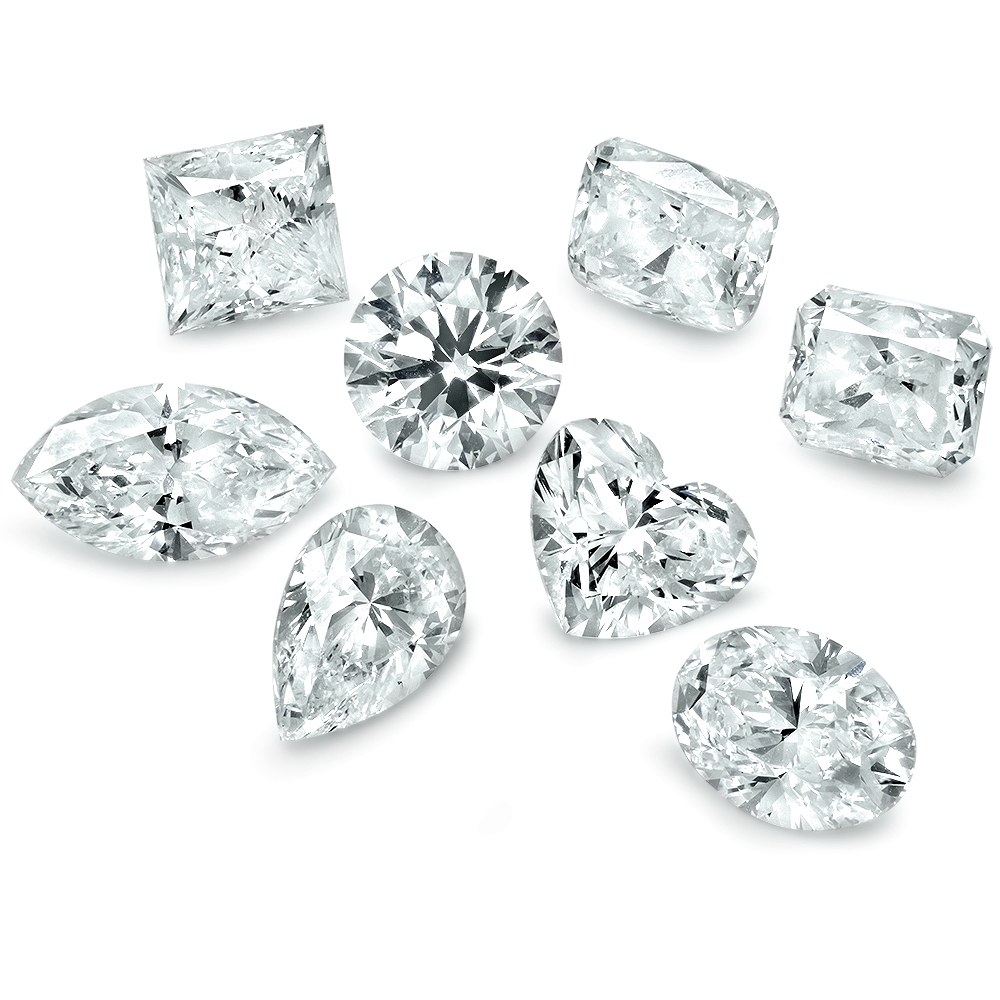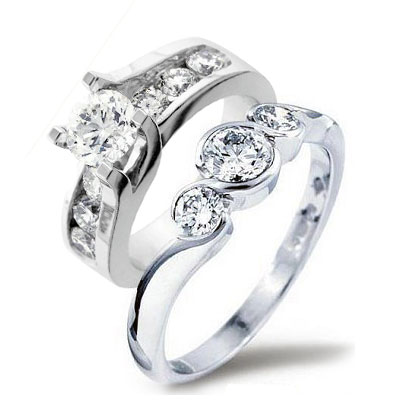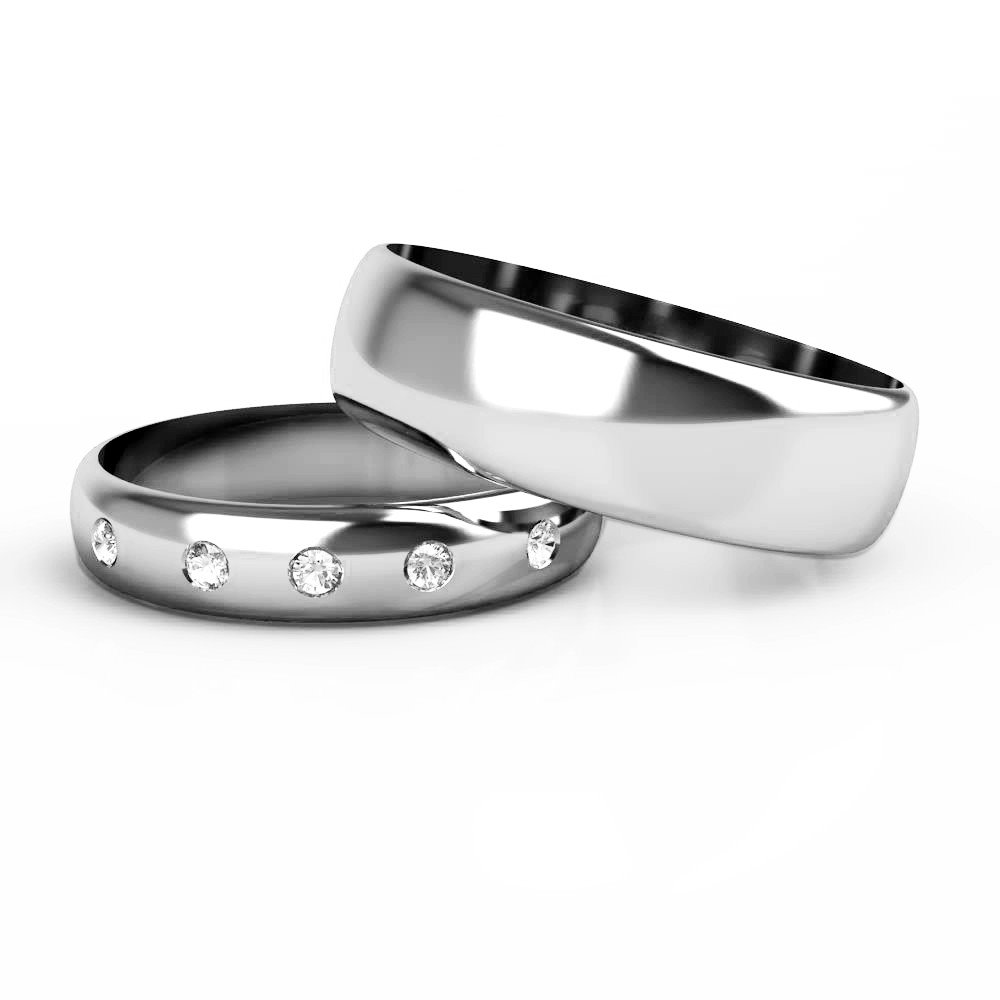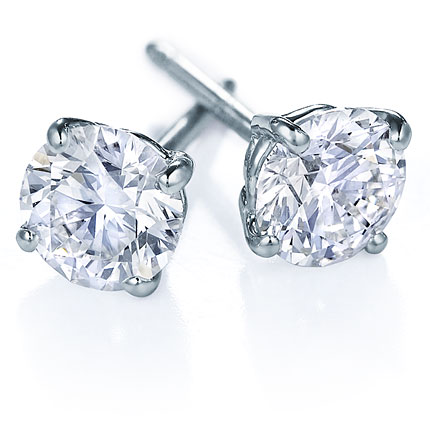Please Note:
We will be closing for all orders for 2025 on 5th December.
Diamond Source will be closed for Holidays from 19th December until 12th January.
We will be closing for all orders for 2025 on 5th December.
Diamond Source will be closed for Holidays from 19th December until 12th January.
We offer READY TO SHIP JEWELLERY - View Collections
The Facts About Blue Diamonds
Diamonds are composed of carbon atoms that have been subjected to extreme pressure and heat. If the diamond contains no impurities then the colour will be crystal clear. Nature rarely creates anything that does not have any impurities in it. Most diamonds will contain some amounts of nitrogen atoms. If a few of the millions of carbon atoms have been replaced by nitrogen atoms, then structure of the diamond will not be significantly altered but the clarity will be changed.
When sunlight, which contains all colours, passes thought a diamond some of the light waves will be reflected by the nitrogen. The amount of colour displayed is dependent on the amount of nitrogen involved. When we see colour it is because the object we are looking at reflected a specific wavelength of the light spectrum. A good example of this is a pair of blue jeans. The jeans absorb all of the light except the blue light, which is reflected by the jeans.
In the case of a blue coloured diamond some of the nitrogen has been replaced by Boron. Boron will reflect the blue wavelength of the light spectrum. The higher the concentration of boron the more colour will be showed. At a level of one or a few boron atoms for every million-carbon atom, an attractive blue colour results. Natural diamonds of this colour are rare and highly priced, such as the Hope diamond.
Coloured diamonds are very rare and very expensive. The Blue diamond is one of the rarest, and in my option the most desirable of the coloured diamonds. The Hope diamond, which can be viewed in the Smithsonian Institution in Washington D.C., is the most famous blue diamond in the world, and at 45.52 carats the largest.
The Hope Diamond is more than a billion years old and it is the worlds' largest deep blue diamond. It was first found in Golconda, India in the early 1600s and has had a very chequered pasted ever since. It has crossed oceans and continents many times, has been owned by Kings and Commoners, has been stolen and recovered, sold and resold, cut and re-cut.
Famous blue diamonds are valuable investments and include such stones as The Queen of Holland, The Blue Empress, and The Regent Diamond. There are very few blue diamonds and the owners rarely sell these because of their value. The blue stones that are famous come in a wide range of hues. There are at least six different shades of blue in the diamonds that have become famous. The shade of the diamond is usually a matter of preference for those looking for special colours in the diamonds that they buy.
The famous blue diamonds come in different shapes including pear shaped and octagon shaped. The cut of these valuable gems is especially important for large, coloured stones and the cut must enhance the natural beauty of these wonderful gems. Sometimes the largest stones that are found with a blue colour are studied extensively before any cutting is begun.
When sunlight, which contains all colours, passes thought a diamond some of the light waves will be reflected by the nitrogen. The amount of colour displayed is dependent on the amount of nitrogen involved. When we see colour it is because the object we are looking at reflected a specific wavelength of the light spectrum. A good example of this is a pair of blue jeans. The jeans absorb all of the light except the blue light, which is reflected by the jeans.
In the case of a blue coloured diamond some of the nitrogen has been replaced by Boron. Boron will reflect the blue wavelength of the light spectrum. The higher the concentration of boron the more colour will be showed. At a level of one or a few boron atoms for every million-carbon atom, an attractive blue colour results. Natural diamonds of this colour are rare and highly priced, such as the Hope diamond.
Coloured diamonds are very rare and very expensive. The Blue diamond is one of the rarest, and in my option the most desirable of the coloured diamonds. The Hope diamond, which can be viewed in the Smithsonian Institution in Washington D.C., is the most famous blue diamond in the world, and at 45.52 carats the largest.
The Hope Diamond is more than a billion years old and it is the worlds' largest deep blue diamond. It was first found in Golconda, India in the early 1600s and has had a very chequered pasted ever since. It has crossed oceans and continents many times, has been owned by Kings and Commoners, has been stolen and recovered, sold and resold, cut and re-cut.
Famous blue diamonds are valuable investments and include such stones as The Queen of Holland, The Blue Empress, and The Regent Diamond. There are very few blue diamonds and the owners rarely sell these because of their value. The blue stones that are famous come in a wide range of hues. There are at least six different shades of blue in the diamonds that have become famous. The shade of the diamond is usually a matter of preference for those looking for special colours in the diamonds that they buy.
The famous blue diamonds come in different shapes including pear shaped and octagon shaped. The cut of these valuable gems is especially important for large, coloured stones and the cut must enhance the natural beauty of these wonderful gems. Sometimes the largest stones that are found with a blue colour are studied extensively before any cutting is begun.





